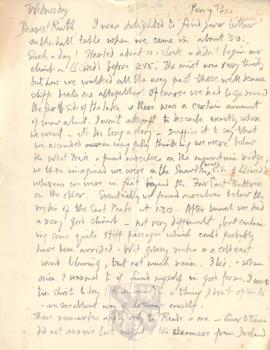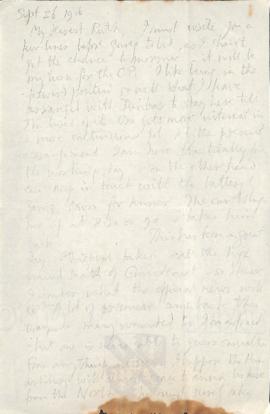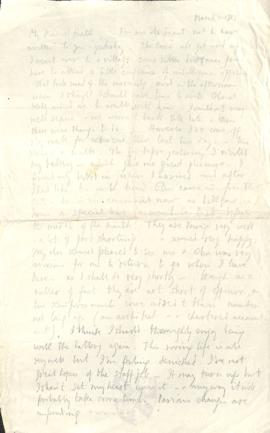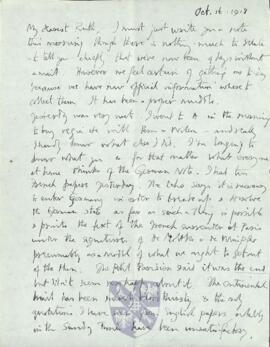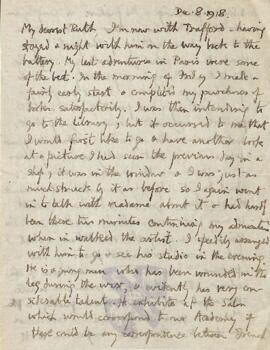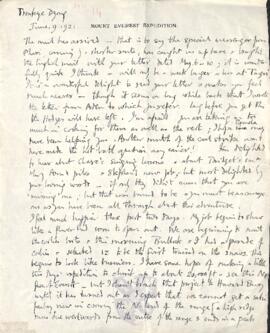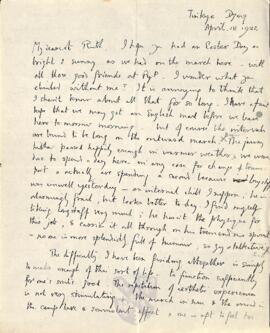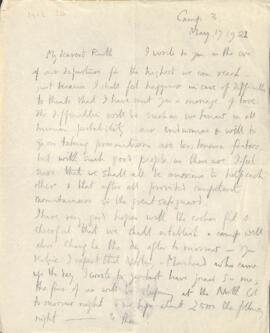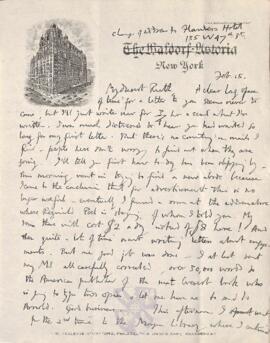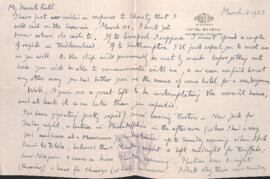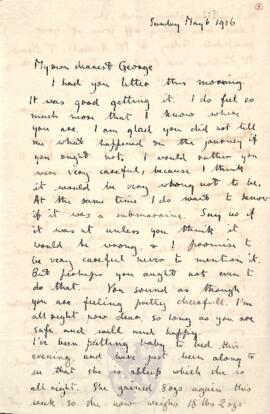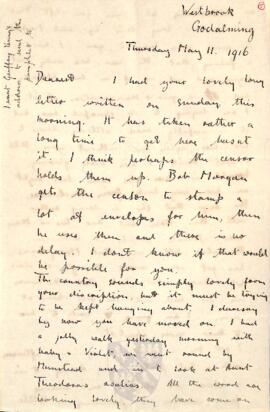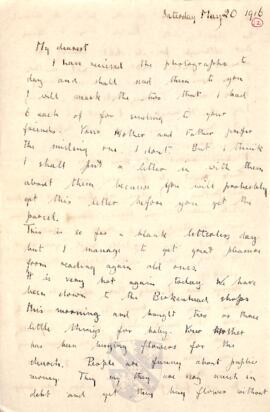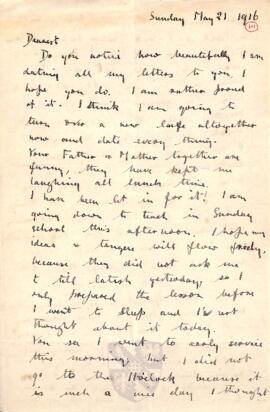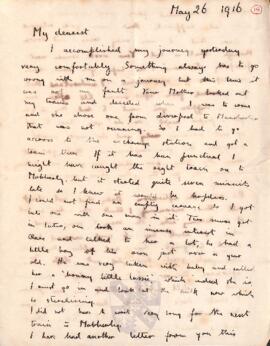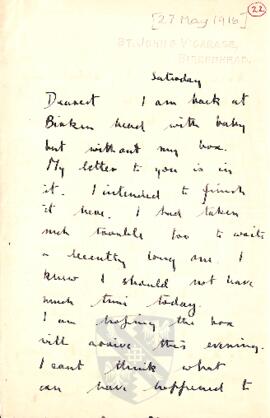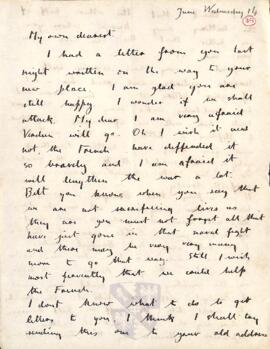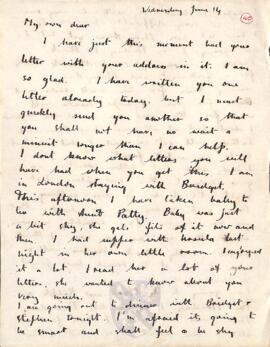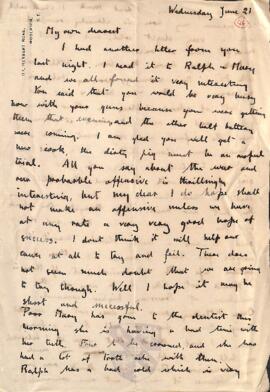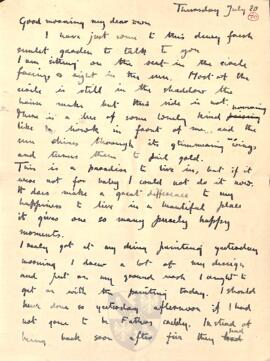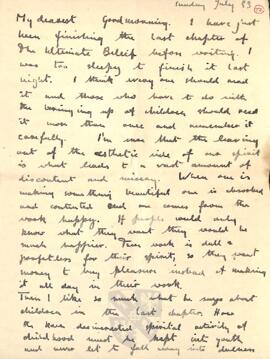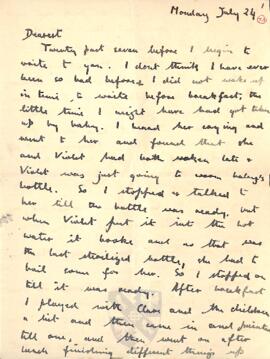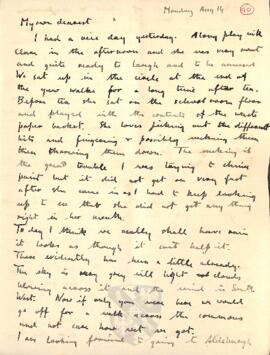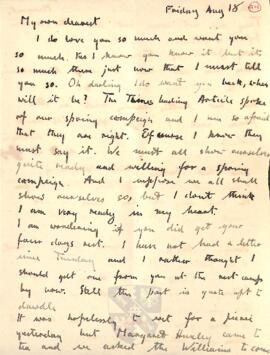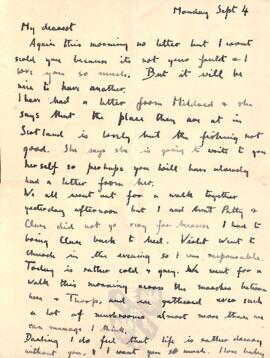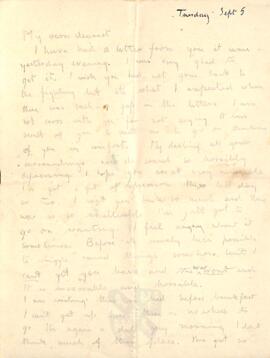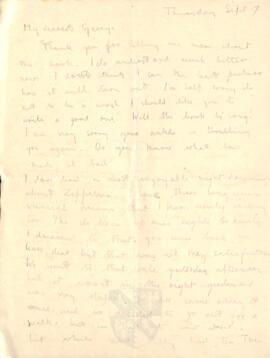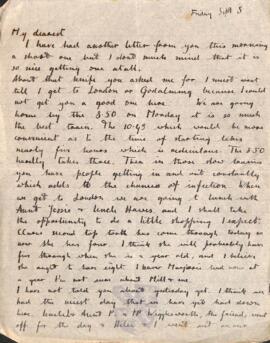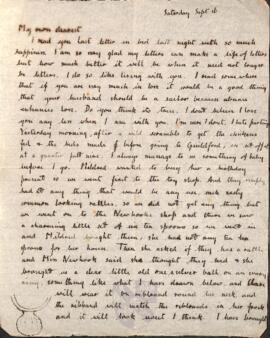Letter from to Ruth Mallory, from ‘Tinkeye Dzong’.
Brief Summary
Delayed because Longstaff had been unwell. Photographed Gyanka mountains with Morshead and Somervell but it was cloudy. Finch gave oxygen demonstrations. Details of evening routine. No thought had been put into how they were to carry oxygen cylinders up and down. Outlined their plans for camps when they reached Everest.
Detailed Summary
Wonders what she is climbing with their good friends at Pen y Pass and is annoyed that he won’t know for a long time due to the time it takes for the mail to reach them.
Their journey had passed happily enough in warmer weather but they had to stay a second day because Longstaff was unwell. Thought Longstaff was ‘alarmingly frail’ but looked better today. He liked Longstaff very much but he didn’t have the physique for this job although he did carry it all through with his tremendous spirit.
The repetition of aesthetic experiences was not very stimulating. The march in sun and wind and the camp had a somnolent effect and he felt too much like an animal. However these two days had been full enough.
He had gone on a little expedition with Morshead and Somervell to photograph the Gyanka mountains but the clouds had spoilt the plan which was a disappointment and after the previous four days which had been marvellously clear (could distinguish details on Everest with the naked eye from Kampa Dzong over 100 miles away). He put on an amusing show when teaching the porters how to use the rope by tumbling down a little slope and pretending to fall into crevasses. He walked nearly an hour to visit some rocks where they had a strenuous little climb.
Finch gave oxygen demonstrations after tea largely for the benefit of the novices which showed up several weaknesses which had developed in the apparatus which they had used for practice on board the S.S. Caledonia. It could be adjusted but showed how many chances were against its working perfectly.
The evening routine consisted of dinner which was always an early meal (not later than 7pm) and they usually sat talking until 8.30pm when the party began to break up and he was usually in bed by 9pm or soon after. He was trying to learn a little Gurkali - enough to get on in some simple fashion with the porters, a matter which may be of some importance when they come to fix a camp on the North Col.
They talked a lot about the organisation for climbing Everest. General Bruce was under orders to try the oxygen but it was an interesting result of the haste in which the expedition had been equipped that no calculations had been made as to how they were to carry the whole weight of the oxygen cylinders and apparatus (8-900 lbs) up and down. He and Longstaff had been going into the question of organisation as General Bruce wanted to be ready with a plan when they fixed the base near the Rongbuk Glacier. From his past experience Longstaff knew more about this sort of thing than anyone else and he was very glad to find they were in agreement.
Thought it would take a fortnight to establish a camp on the North Col (my mid May) which would leave a month for operations. That sounded good but it would take another fortnight to get the oxygen to the North Col and they would also have to consider the next stage to a camp at about 25,000 ft. Thought the main trouble was a shortage of men to take supplies up to the different camps. They would also be hampered by insufficient tents and sleeping sacks and wouldn’t be able to leave them in the established camps and would have to carry the sleeping sacks at lease up and down. Didn’t want her to pass on this criticism of the equipment as he thought it had been remarkably well done.
Thinks he may have provided details which she would find difficult to follow. He wasn’t pessimistic. He wouldn’t write much more as the ink was trying to freeze. The party was getting on very well but he found Finch rather tiresome as he was always talking about science as practiced in his laboratory or about photography.
